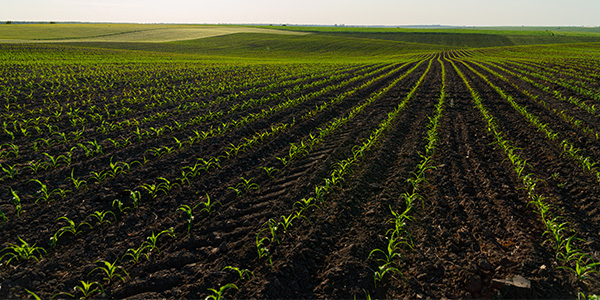AGRONOMICSUPPORT
YOU CAN TAKETO THE FIELD
Plan Planting with Harvest Goals in Mind
Farmers are always thinking ahead and planning for the what-ifs that come with the job. That’s on full display as they make decisions about planting order.
Farmers’ harvest goals and their intentions for the following crop year factor into that strategy, says Jed Norman, an LG Seeds agronomist in Iowa. “Those looking to push the needle are always thinking through how they might better their operation with strategy tweaks from season to season.”
Key points
- End-of-season goals should impact planting order.
- Assess last year’s results and tweak your strategy for even better results this season.
- Be prepared to pivot based on weather conditions to ensure good seedbeds.
Consider the past and goals for the future
When determining planting order, Norman advises farmers to start by looking back on their game plan from the year prior. “Evaluate whether the performance was good, whether corn was dry coming out of the field and whether you were happy with late-season intactness,” Norman advises. “Ask yourself if you felt good about how last season’s plan played out.”
A farmer can use that assessment to tweak (or overhaul) their plan, aiming for even better results. Norman says the other major player in that planting order strategy should be the farmer’s goals for the season.
“A farmer might have a grain dryer system and want to harvest a field relatively early to push yields,” Norman offers as an example. “Or a farmer with manure and limited storage for it may need to get the crop out earlier so they have acres to spread it on.
Farmers should cater planting order and the relative maturities of their hybrids to those timelines.
A good seedbed outweighs all
“To quote the boxer Mike Tyson, ‘Everybody has a plan until they get punched in the face,’” Norman says, likening spring weather to that blow. “Farmers can have the best plan, and then the weather tells them different.”
With that in mind, he encourages farmers to have a strategy for planting order but be ready to adjust it to ensure crops are planted to good seedbeds. Norman says, “Regardless of your plans for hybrid and field order, if you don’t have a good seedbed and seed-to-soil contact, you’ll fight an uphill battle all season.”
Farmers should pay attention to the soil temperatures and soil moisture of individual fields. “Planting before fields are fit can result in hardpan or sidewall compaction that jeopardizes final stand and yield potential,” he explains.
Spreading planting dates spreads risk
Norman also encourages farmers to spread out planting dates if operation size allows. “I’m a firm believer in spreading risk,” Norman says. “If all of your crop is tasseling at the same time and a heatwave moves in, all of your acres will be hit.”
A better strategy is to spread those planting dates as well as the relative maturities of hybrids to mitigate that risk.” That can also help with time management when it comes to things like nutrient or fungicide applications, he adds.
Additional considerations
Farmers with dual purpose corn acres should try to align with the R5 stage of development when silage is typically cut with a timeframe when they know they will have the workers, space, and equipment in position to package and pack the feedstock.
Farmers with manure to spread need to know how many acres they will need available. They should also adjust their hybrid selection and maturities to make sure they have seed solutions for capitalizing on that manure application.
Farmers who utilize cover crops need to think through how that fits within their management plan and how that might factor into planting order and hybrid maturities.
“The bottom line when it comes to planting order is that farmers should try to stick with their plans but be ready to adapt to whatever is thrown their way,” Norman says. “At LG Seeds, we take pride in both the products and the support we provide. Whether it’s strategizing planting order or adjusting those plans to account for field conditions, we’ll do whatever we can to make sure our farmer customers can achieve their goals.”





